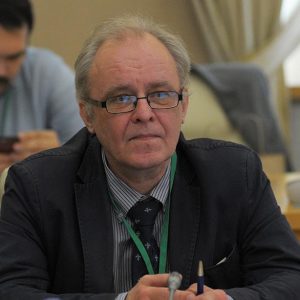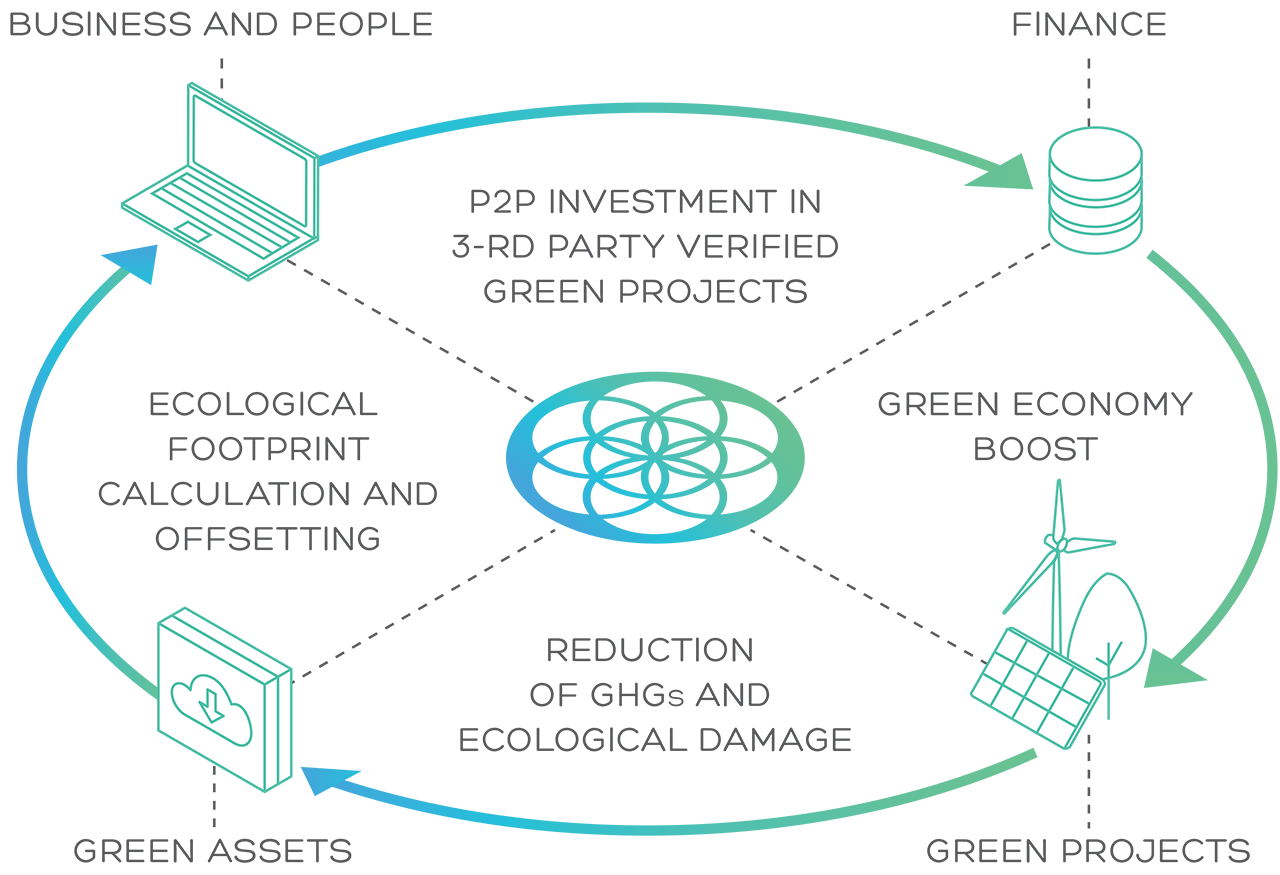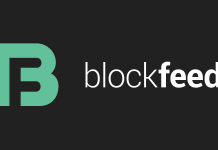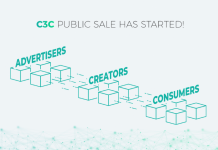Interview with Anton Galenovich co-founder of MITO.
What challenge is MITO addressing?
MITO stands for “Mitigation token” and is addressing the challenge of societal costs, the costs and damages collateral to any economic activity in general. In particular and in the first instance, MITO and DAO IPCI are addressing climate change mitigation challenge.
What is the scale of this challenge?
Climate change, societal and environmental damage is a global challenge
How does MITO turn this challenge into an opportunity?
DAO IPCI and Mitigation token turn the challenge into opportunity by introduction of blockchain solution to provide common space, common space fabric, common tools and ecosystem that is universal, reliable, easy-to-use, and transparent and allows diverse stakeholders, including businesses and individuals, to register quantified impacts and pledges, to invest mitigation projects, to offset carbon footprint, to acquire and trade mitigation outcomes, to join existing programs or launch new programs.
Can you showcase some team members/advisors which have a strong background? What is their connection with this particular project?
Team
Anton Galenovich, Ph.D
Has more than 30 years of experience in international political and economic relations, almost 20 years of experience in international climate policy issues, environmental market-based mechanisms. Chairman of Association of European Business in Russia Climate Policy Working Group Active participant of international and Russian climate policy private-public dialogue since 1998. Researcher and key author of studies and papers on environmental and climate market-based mechanisms. Lead DAO IPCI Developer.
Sergei Lonshakov
Blockchain and smart contract projects developer, Airalab team leader. Sergey has been working (performing R&D) on: Bitcoin/Altcoin/cryptocurrency projects since 2011, Smart contract/Ethereum platform projects since 2014, DAO (decentralized autonomous organization) projects since 2015. Since September 2015 Sergey has been researching capabilities of Ethereum platform for DAO and IoT solutions. DAO IPCI Architect
Advisors
Ingo Ramming
Ingo Ramming is the managing director at Commerzbank and Co-Head of Commodity Solutions. He is a member of the supervisory board of Deutsche Börse Commodities and co-chairs IETA’s EU ETS WG. He worked at Dresdner Kleinwort and ENRON. Until 2013, he was a Director of Carbon Trade & Finance (JV Gazprombank/Dresdner Kleinwort)
Cao Ying
Cao Yin is the Founding Partner and Chief Strategy Officer of the Energy Blockchain Labs. He also is the Chief Expert of Blockchain of China Cinda Security and Founder and Co-president of Digital Commerce Chamber of China
Cao is one of the earliest proponents of the energy Internet concept in China. He participated in the formulation of China’s national definition of Energy Internet and participated in the formulation and popularization of China’s National Energy Internet Action Plan
Douglas Prentice
Douglas Prentice is the CEO of Geocapita, UK impact investment fund providing investments into sustainable projects. He has worked in the finance sector in London and Europe for nearly 30 years. Mr Prentice is a qualified underwriter and stockbroker and has been engaged on advising on large scale government infrastructure projects in Eastern Europe.
He holds a Masters Degree in Economics and a Masters Degree in Renewable Energy. Mr Douglas Prentice reads lectures in renewable energy finance at Edinburgh Napier University.
Xiaochen Zhang
Xiaochen Zhang is the president of FIntech4good. He brings more than 16 years of thought leadership and global experience to build impactful solutions and scale up innovative ideas in North America, Africa, Latin America, Europe and Asia.
He is the Chairman of the Global Blockchain4SDGs Alliance, and serves on the Crowdfunding Professional Association Board of Directors, UN ESCAP Digital Economy Task Force and as a senior advisor of the China Social Entrepreneurs Foundation and Inter-America Development Bank.
Does MITO have any strategic partnerships?
We have MOUs on collaboration with GeoCapita (UK), Chooose (Norway), E&Y, Energy Blockchain Labs (China)
Does MITO have a viable product at this time?
Yes, DAO IPCI DApp with minimum viable functionality was launched at the end of 2016. Pilot transactions have been performed in March 2017
What is the status or this product? (Alpha Beta or production)
Production
How many users are actively using this product?
For the moment, we have a dozen of identified users. It takes time to agree with carbon market regulators and climate program regulators for them to allow operations in blockchain. We are in contact and constructive discussions with them, including UNFCCC Secretariat and Parties to UNFCCC.
Does this token generate yield or will MITO execute token buybacks?
MITO is not a share of equity or any sort of a security. It will be listed.
Mitigation Token (or MITO) is protocol-based token, exchange vehicle for assured environmental units, the key element to provide for transactions’ efficiency and integrity of DAO IPCI ecosystem.
Post-ICO MITO emission limit = total environmental units issued by ecosystem members – initially issued tokens
Post-ICO MITO volume would directly correlate with the volume of environmental units, serving as a hedging instrument and growing along with environmental market instruments
If there is a yield, in what coin will it be denominated?
MITO holders shall receive 50% of further MITO emissions. Further emission of MITO shall be

Ph.D, Co-founder
governed by MITO emission protocol and pool of decentralized autonomous organizations, which agree on MITO emission policy and abstain from emission of alternative digital currencies to be exchanged for environmental units or other independently assured mitigation outcomes (“MITO pool of DAOs”). Further emission of MITO shall be possible after MITO Pool of DAOs is formed and MITO emission protocol is refined but no sooner than one year after the start of ICO.
How is MITO different from the EU Carbon Emissions Trading scheme?
EU ETS is one of mandatory large-scale climate programs, which can operate in DAO IPCI blockchain ecosystem, use MITO as an exchange vehicle, and interlace with other climate programs operating in the same digital, public, transparent and decentralized environment
What is the structure of the ICO? (Bonuses, Dates, Market Cap)
Initial emission and distribution of MITO shall be limited by 10,000,000 tokens and performed in two stages:
At the preliminary stage, emission and distribution of MITO shall be limited by 1,000,000 tokens to be exchanged for ETH at 1 MITO for 0,003 ETH exchange rate.
Main stage of ICO is scheduled for November.
This would provide for fungibility, for launching exchange of diverse environmental units and for developing demand for assured mitigation outcomes.
We shall consider bonuses for the main ICO stage
What are the requirements to participate in the ICO?
We have to restrict participation be the US residents and residents of some other jurisdictions to avoid regulatory risks
What are the pros and cons for the token holders?
Token holders do not get any shares of equity or promises for profits. They contribute to addressing global challenges, to creation of new economic digital environment. They may exchange MITO for assured environmental units. They shall receive 50% of further emissions of MITO. MITO and DAO IPCI ecosystem value would grow along with growth of environmental markets.
Was there a pre-ico?
We are starting the pre-sale on September 11 at http://mito.ipci.io
What is the price of the pre-ico and the price of the ico?
At the preliminary stage, emission and distribution of MITO shall be limited by 1,000,000 tokens to be exchanged for ETH at 1 MITO for 0,003 ETH exchange rate. For the main stage of ICO in November, the rate would be 0.007 ETH

How many tokens will be issued?
10,000,000 for the ICO with 1,000,000 for the pre-sale
Is there a cap on the ICO?
For the presale it is 3000ETH
Would you like to add any further info?
We owe the future to our children, and we can contribute to it on our own free choice now, track our contributions and even benefit
In your opinion what are the ingredients to create positive change in the world?
Decentralization + free choice + minimum necessary government interventions + accounting and fair evaluation of contributions, small and big.
More information:
We thank Anton Galenovich for the interview.












